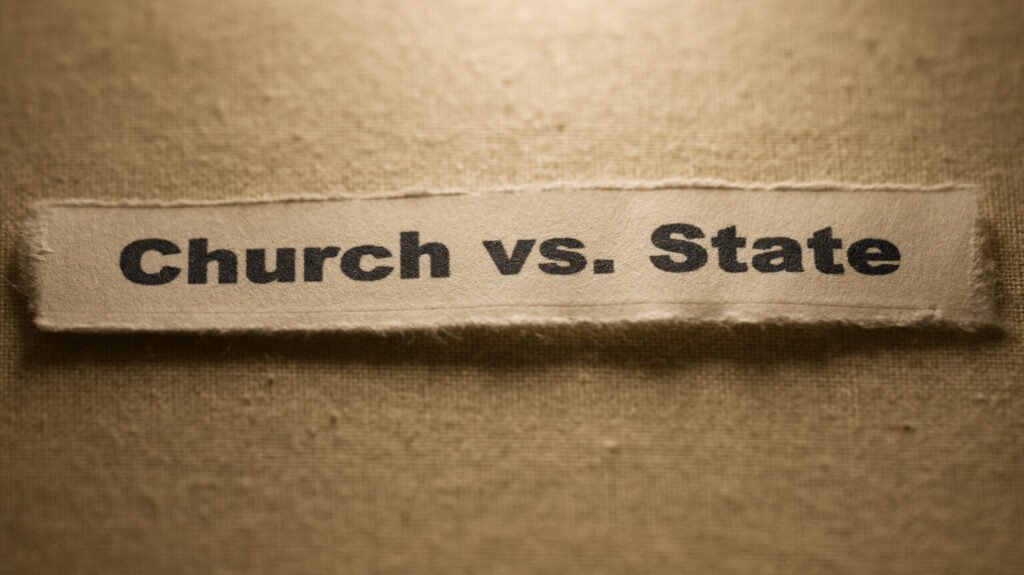A recent decision by the Alabama Supreme Court classifying frozen embryos as children under state law is more than just legal precedent. It's a social earthquake that shakes the very foundations of Alabama's in vitro fertilization (IVF) treatment and, more broadly, individual freedom.
This decision not only blurs the line between church and state; It erases them, embeds particular religious perspectives in the law, and ignores the pluralistic society it is intended to govern.
Although groundbreaking, the court's decision is just one thread in a larger, more worrying tapestry woven throughout our political and legislative landscape. Within the walls of the state Capitol, not far from the courthouse, Republican lawmakers are campaigning for legislation, seemingly cut from the same cloth of religious fervor and political gamesmanship.
Driven by particular religious zeal, these legislators adhere to narrow interpretations of Christian doctrine and enact laws that reflect recent court decisions. Their actions extend far beyond reproductive rights and permeate the very pillars of our public institutions. The books on the shelves of public libraries and the curriculum that shapes the minds of young people in public schools are under scrutiny and subject to the imposition of idiosyncratic religious perspectives.
What we are witnessing is not simply a series of discrete policy adjustments, but an organized campaign to inject a particular religious ideology into the fabric of our public life. The implications are profound, affecting issues of freedom, self-government, and the secular principles on which our nation was founded.
The laws passed go beyond regulating what is read and taught. They define how individuals can express their gender identity, deprive us of the right to bodily autonomy, and narrow the perspectives from which we view and understand our history.
Supporting the views of the Alabama Supreme Court and state legislature means disregarding secular principles as well as other religious viewpoints and favoring one particular interpretation over another. This approach not only violates the religious freedom of non-evangelical Christians, but also violates the founding principles of the United States: the separation of church and state envisioned by founding fathers like Thomas Jefferson and James Madison. ignoring the nation. He rejected the concept of a national religion.
The risks of merging religion and governance are not just theoretical, but also historical realities. Countries governed by religious law, such as Saudi Arabia, Iran under the Ayatollahs, and Afghanistan under the Taliban, are aware of the potential consequences of discrimination, conflict, and suppression of individual rights when religious doctrines dictate national policy. is exemplified.
In these countries, women have limited legal rights recognized only by their husbands and the state. LGBTQ individuals face threats of violence, imprisonment, and death. History is taught exclusively through the perspective of religious regimes, and when elections are held, they are manipulated to ensure predetermined outcomes. Observe your surroundings. Have you noticed any similarities in the thinking of people who want to develop our countries?
The United States, known for its diverse religious backgrounds and secular government, is at risk of heading down a similar path if it sticks to the path gaining momentum in red states like Alabama.
This alignment of religious beliefs and political power has evolved since the late 20th century, especially within the Republican Party. Organizations such as the Moral Majority and the Religious Right started this trend with the aim of shaping public policy according to conservative Christian values. The election of Ronald Reagan was an important milestone in solidifying this alliance, and the subsequent Republican platform increasingly responded to evangelical concerns. This fusion of religion and politics shaped party policy and led to a cultural fusion of religious identity and political allegiance, especially in regions where evangelical Christianity predominated.
But linking Christianity to state power risks distorting the religion itself, potentially alienating believers by aligning it more closely with political objectives than with spiritual teachings. The movement to politically uphold traditional values, especially within the Republican Party, reflects a reaction to rapid social change. However, it is important to remember that the religious component of the party, while important, is not homogeneous and encompasses a variety of beliefs and levels of commitment.
Basing government policy on religious doctrine is a precarious path that challenges democratic principles, individual rights, and social harmony. The Alabama Supreme Court's decisions and actions in the Alabama Legislature highlight these challenges and the need for governance that respects and protects the diverse religious beliefs of all citizens, rather than favoring one over another. It emphasizes gender.
In doing so, we must remember the lessons of history and our founding ideals to ensure that the separation of church and state remains a cornerstone of American democracy. Otherwise, you risk religious fervor and the hell that comes with it.







